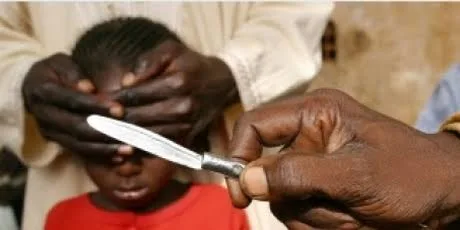As the world commemorates the International Day of Zero Tolerance for Female Genital Mutilation today, Nigeria has joined in the fight to end this in the country.
Every 6th of February is a day set down by the United Nations to create awareness on putting an end to Female Genital Mutilation’s harmful practice which involves the partial or total removal of external female genitalia for non-medical reasons.
In 2012, the UN General Assembly designated February 6th as the IDZTFFGM, aiming to amplify and direct the efforts to eliminate this practice. Despite this, in 2024, nearly 4.4 million girls – or more than 12,000 each day – are at risk of FGM around the world, the UN says. It estimates the financial cost of health care for FGM survivors at $1.4 billion annually.
With this year’s theme: “Her voice, Her future,” the government, non-governmental organizations, faith-based organizations and communities are urged to lend their voice to making sure they protect the sexuality of young girls and women.
FGM is typically carried out on young girls, often without their consent, and can lead to severe physical and psychological consequences. It is recognized internationally as a violation of human rights, and efforts to eliminate it involve advocacy, education, and legal measures.
According to Ref World, an international charity, in Nigeria, the estimated prevalence of FGM among women aged 15 to 49 is 24.8 per cent. It states that over 20 million women and girls in Nigeria have undergone FGM. This represents 10 per cent of the global total. The highest FGM prevalence is in the South-East (49 per cent) and South-West (47.5 per cent). The North-East has the lowest prevalence (2.9 per cent).
Data shows that 32.3 per cent of Nigerian women aged 15 to 49 living in urban areas have undergone FGM, compared to 19.3 per cent of women living in rural areas.
The main reason, according to adherents of this heinous practice, is that it is used to “preserve virginity/prevent extra-marital sex.” This is a fallacy. The World Health Organisation says the practice has no health benefits and causes severe bleeding and problems urinating, and later cysts, infections, as well as complications in childbirth and increased risk of newborn deaths.
Although primarily concentrated in 30 countries in Africa and the Middle East, FGM is a universal issue.
In May 2015, a federal law was passed in Nigeria banning FGM and other harmful traditional practices. Still, this Violence Against Persons Prohibition Act only applies to the Federal Capital Territory. While it is encouraging that 13 of the 36 states already have similar laws in place, there remains an inconsistency between the passing and enforcement of laws. It is up to the remaining states to domesticate the legislation in their territories.
Over the last three decades, the prevalence of FGM has declined globally. Today, a girl is one-third less likely to undergo FGM than 30 years ago.
An expert who spoke in an exclusive with IdanNews, the Osun State Coordinator of
Inter-African Committee (IAC), Nig, on the Eradication of Harmful Traditional Practices Affecting Women and Children, Mrs Aduke Obelawo spoke about creating awareness on FGM.
According to Mrs Obelawo, it’s crucial to acknowledge the ongoing efforts to eradicate this harmful practice.
“ On this day, we recognize the importance of empowering communities to abandon FGM through education, advocacy, and alternative rites of passage that celebrate womanhood without harm. Support services for survivors, including access to medical care counseling, and legal protection, play a crucial role in healing and breaking the cycle of intergenerational trauma. We urge governments to strengthen legislation and enforcement measures, allocate resources for prevention and support services, and engage communities in dialogue and education.
“ Every individual has a role to play in this global movement to protect the rights and dignity of girls and women everywhere. Together, we can create a future where FGM is relegated to the past, and all girls can grow up free from harm and discrimination.
“ Let’s raise awareness, educate others, and support survivors in their journey towards healing and empowerment. Together, we can work towards a world where every girl and woman is free from the threat of FGM and can live a life of dignity and equality.
“The benefit our forefathers tell us are the benefits of FGM are not real but only perceived, she said.”
